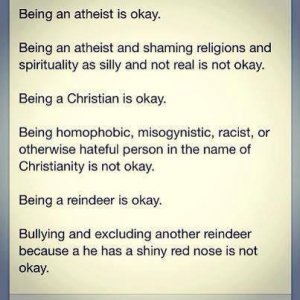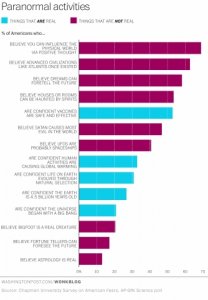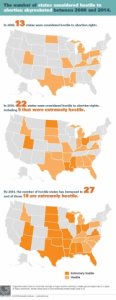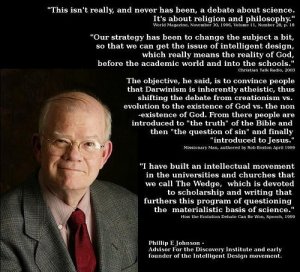- Joined
- Aug 29, 2014
- Messages
- 4,351
I had no idea religious schools in the US were automatically private. In Alberta, we have public, which can be french/english (i think we have a spanish one now too?), catholic and private. I know we also have a muslim school, however I'm not sure of it's funding or where it falls.Maria D|1415327142|3778932 said:telephone89|1415057878|3777055 said:I will start off by saying I am a pretty hardcore atheist. BUT one of my favourite past times is learning about other religions. I find it facsinating.
I do not believe that religion should have any place in schools (or government). I do not believe that students should be taught any sort of religious things at school. I feel like if parents want their child to learn a religion, they should teach it to them. This will make the parents accountable for what their child is learning, and it also puts a bit of pressure on the parents to make sure they actually KNOW what they're teaching! I say this for private schools as well, however it gets a little sticky there. I believe in Canada, all of our students have to take the same provincial tests - whether catholic, public or private. So I think that is fine, as all of our kids are held to the same standard. I don't know how much of the information on the exams is evolutionary based, it could only be a very small percentage.
Just wanted to point out that in the States, religious schools are always private. I'm not sure about all of Canada, but in Ontario there are four "separate" publicly funded school systems - English, English Catholic, French, French Catholic. So of course the religious schools would have to meet the same standards as other public schools, since they are public schools. I don't know about all of the U.S., but in Maine this is not true. In fact, it's not just private (which would include religious) schools that are exempt from state standards and hiring certified teachers - publicly funded charter schools are also exempt! Great way to siphon off taxpayer money to the private sector - allow charter schools.
By the way, I'm amazed that the right to a public religious school system hasn't been demanded by other religious groups in Ontario. What's stopping Muslims, Jews, Hindus, etc from insisting on their own separate school boards?
...and the secular version of AMEN to everything ksinger said!
Also somewhat related to this thread is the Trinity Western Law school kerfuffle going on in BC. A (sort of) private Christian university is wanting to add a Law program, however they've been told that none of their students would count as real lawyers based on the covenant the university makes them sign (no sex before marriage, and only in a traditional sense of marriage). Pretty interesting stuff.
http://www.cbc.ca/news/canada/british-columbia/trinity-western-law-school-b-c-law-society-members-vote-to-reverse-approval-1.2818540








300x240.png)